
How UPPAREL rewrote Australia’s textile waste story.
The opening scene: socks, curiosity and a problem nobody was solving
What began as a modest subscription sock business found its moral question: where do garments go when they’re finished? For founders Michael and Tina Elias that question quickly became an obsession, not just to make better socks, but to make a system that took responsibility for the whole lifecycle.
“Goodbye MANRAGS and hello UPPAREL,” Michael wrote when the company pivoted in 2020, a fresh start that signalled a shift from product to systems thinking.
By the end of that year the business had already hit a milestone that validated the pivot: recognition from the National Retail Association, honouring the company for its sustainability leadership.
“We’ve pulled our socks up and have stepped up for the benefit of the next generation,” Michael told Ragtrader, as the team celebrated its early wins.
Purpose in practice: earning a B Corp and proving the model
Early on the founders committed to verified accountability. In 2021 UPPAREL became a Certified B Corporation, a formal seal that ties commercial success to measurable social and environmental performance. That step changed the company from a feel-good story into an organisation with legal and measurable obligations.
The practical work backed the certification: a public-facing traceability model, open-door reuse for vetted charities, an industrial sorting floor, and detailed impact reporting that partners could audit. UPPAREL published early numbers, over 1.3 million items saved and hundreds of tonnes of textiles diverted-showing that the operation was more than a PR promise.
Tech and materials: UPtex and the idea of “waste reimagined”
A defining break with traditional recycling came when UPPAREL moved beyond collection and into material engineering. The company developed UPtex, a substrate made from de-fibered post-consumer textiles that is fully recyclable at end-of-life and suitable for signage, acoustic panels, insulation, cushion filling, packaging and much more.
“The launch of UPtex represents a breakthrough in our vision for waste reimagined,” Tina said at the UPtex launch.
UPtex is not a marketing gimmick: it’s designed to replace single-use substrates and virgin materials in many low-to-medium performance applications, and the product’s technical specs (various densities and thicknesses, printable and machinable) opened commercial doors in retail, events and the built environment.
The backbone: partners, pilots and real-world programs
Scaling a circular system requires other organisations to play ball. UPPAREL’s growth is tightly connected to partnerships with retailers, charities and big activations that put recycling into people’s hands:
Woolworths & Vanish campaign (Make Textile Waste Vanish): a national activation that offered free UPPAREL pickups and aimed to divert one million clothing items, bringing textile recycling to mainstream shoppers. The partnership dramatically increased public engagement and volume through a simple retail mechanism.
Chadstone activation: a shopping-centre campaign that diverted hundreds of kilograms in short activations and extended UPPAREL’s retail-facing services to store returns and damaged stock.
DECJUBA: a store and prepaid-satchel model that let consumers drop or post denim for recycling; simple shopper journeys like these are the practical workhorses of the circular model.
Bendigo Bank uniform program: a corporate program that diverted 32,000 kg of uniforms and produced a full impact report, proving that even complex uniform streams can be managed on-shore.
UPPAREL’s partner list also includes national charities (Djirra, Save the Children, Youth Projects) who take wearable items first; anything not fit for reuse is processed for UPtex products. The “reuse first, recycle on-shore” rule is central to the ethics of the model.
Recognition, awards and proof points
The growth wasn’t just operational , it registered in awards and industry recognition that matter to partners and procurement teams:
National Retail Association Sustainability Champion (2020): an early public signal that the model worked at scale.
Good Design Award (Communication Design): acknowledged UPPAREL’s ability to translate complexity into accessible, behaviour-changing communications.
Premier’s Sustainability Awards Industry Leader, Waste & Recycling Solutions (2023): recognising the Textile Recycling Collection Program’s systemic impact.
Australian Financial Review Sustainability Leaders 2025 (Manufacturing & Consumer Goods): national sector recognition that placed UPPAREL among mainstream producers driving measurable sustainability outcomes.
These accolades are more than trophies; they reduce friction in corporate procurement and accelerate program roll-outs with large partners.
Numbers that show scale
UPPAREL’s public metrics tell the story in concrete terms: the company reports millions of items saved and thousands of tonnes diverted. Those numbers back up claims about avoided greenhouse gas emissions and reuse outcomes.
Scaling recycling infrastructure is honest, imperfect work. We moved warehouses multiple times, tripled the team early on, and then transitioned from branded D2C label to national recycling operator. Those logistical challenges, more warehouses, more staff, more trucks, are the structural work that lets circular claims become reality.
Why this matters, the emotional payoff
Numbers and awards are useful, but the deeper payoff is moral and practical: UPPAREL rewrites who carries the cost of textile consumption. Instead of shipping problems overseas or passing them along to charities, the company built systems to keep materials on-shore, prioritise reuse and design products (like UPtex) that can re-enter the system at end-of-life.
That’s a subtle but radical shift: it says industry can be accountable, traceable and restorative. For communities, that means usable clothing gets to people in need; for the climate, that means tangible GHG savings; for brands, it means a reliable, auditable path to circular claims.

Search
Latest Posts
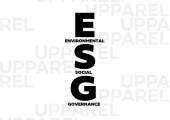
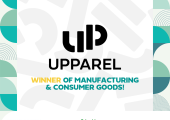
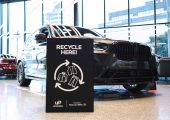

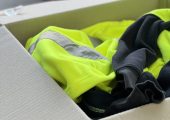
Ready to 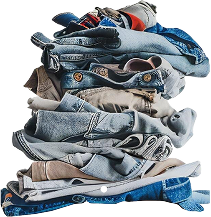 Recycle?
Recycle?
Join thousands of Australians making a difference, one textile at a time.
